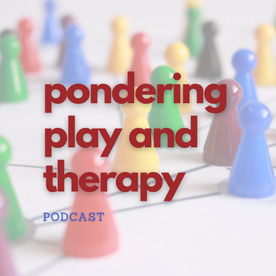
Is saying 'sorry' always necessary in the child-parent relationship
Is saying “Sorry” Always Necessary in the Parent-Child Relationship? In every parent-child relationship, moments of rupture and mis-attunement are inevitable. Whether it’s a child saying ‘no’ to a parent’s request, a parent missing a child wanting connection, or a misunderstanding, these ruptures can create emotional break between you and your child. But what happens after a rupture? Is saying “sorry” always necessary? And, more importantly, how can parents’ model healthy repairs in these moments? When we think about repairing relationships, we usually think about an apology, especially when we’re trying to resolve a conflict. But is that always the best approach? In fact, sometimes saying “sorry” too quickly can feel forced or begrudging, undermining the repair rather than supporting it. post description.
Philippa
3/14/20253 min read


Modelling the Repair Process
It’s so important for parents to model the repair process, especially when it comes to reconnecting. Children, particularly younger ones, may not have the cognitive or emotional tools to understand what happened during a rupture, nor how to properly repair it. This is where parents play a vital role in guiding their children through the process of reconnecting in the relationship.
But how we go about this is just as important as the repair itself. Firstly we need everyone to be regulated so it is crucial not to rush to the apology if both parent and child are not in a regulated stated. Perhaps creating space for both parties—whether that’s parent and child, or even siblings or peers—to reflect, breathe, and process their emotions would be more helpful. This doesn’t mean the repair avoiding the repair, but sometimes there needs to be time between the rupture and the repair.
The Power of Gestures Over Words
Apologies don’t always need to come in the form of words. Often, children express their desire for reconnection through small, non-verbal gestures. It might be a hesitant smile, a hand on a shoulder, or even a teenager sharing information with you that signals a wish to make amends. These gestures are crucial and often more meaningful than words. Imagine these gestures as small “openings”—a way for children to gently nudge the door back open, signalling, “I want to come back to you, to reconnect.”
As parents, it’s important to notice these moments. A child might not always have the language or emotional capacity to say “sorry” immediately, but that doesn’t mean they aren’t offering a repair. They might be offering a repair in the form of a hug, a kind action, or simply by showing you they are now regulated. Recognising these subtle signs can be just as important as teaching children to say “sorry” aloud
The Need for Time
As we said, there are times when both the parent and the child need a bit of space and time before the repair can take place. Emotions can run high in the aftermath of a rupture and attempting to rush into a “fix” without allowing both parties the space to calm down may lead to a superficial or insincere resolution. Julie shared on our podcast her experience when she was working in a school, she now reflects that there were often times when she found herself encouraging children to say “sorry” almost immediately after a conflict, just to restore order.
Looking back, she reflects that forcing an apology often resulted in a “begrudged sorry,” something that didn’t really repair the relationship. In fact, those apologies felt more like a band-aid than a solution. In hindsight, giving those children a little more time—maybe a few hours or even until the next day—would have allowed them to genuinely reflect on their actions and come back together with a more heartfelt repair.
The Importance of Rupture and Repair
Rupture and repair are essential to developing emotional resilience. Without rupture, there can be no repair—and without repair, there’s no growth. Life is filled with moments of tension, disagreement, and emotional challenge, but it’s through navigating these ruptures and coming back together that we build stronger emotional “muscles.”
A life without rupture—and therefore no opportunity for repair—doesn’t lead to emotional growth. In fact, avoiding rupture entirely can stifle our ability to process and manage conflict in healthy ways. We need the challenge of repair to help us grow into empathetic, resilient people.
In the parent-child relationship, the process of rupture and repair builds emotional intelligence, and it’s essential for both the parent and the child to experience it. Parents can’t always prevent conflicts or disconnection from happening, but they can guide their children through the process of making things right. And sometimes, that means recognising when it’s time to step back, give space, and allow both sides to process their emotions before jumping to a hasty “sorry.”
In Conclusion
So, is saying “sorry” always necessary in the parent-child relationship? Not necessarily. Apologies are important, but they don’t always need to come immediately or even in the form of words. Sometimes, a repair can take place through a gesture, through time, or through simple, quiet reflection. The key is for parents to model the process of repair in a way that is authentic and respectful, allowing room for both them and their children to navigate emotions in a healthy, meaningful way.
Rupture and repair are powerful tools for emotional growth, and by embracing them, we not only strengthen our relationships but also help build the emotional resilience of the next generation.
